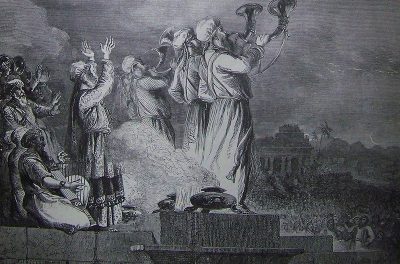Supreme Court ruling enables “level playing field” for wheelchair travellers
Christian disability charity Through the Roof is pleased that the additional difficulties experienced by wheelchair users has been recognised today by the Supreme Court in London. The ruling means that it is discriminatory for a bus driver to “request but not require” a non-disabled person to vacate the allocated space if a wheelchair user wishes to board the bus. Instead, some further steps should be considered to pressurise the non-wheelchair user to vacate the space. This does not give wheelchair users some special privilege over other travellers; it simply acknowledges that they are entitled to a level playing field, the same right to make a journey as everybody else.
Through the Roof wants to see society treating disabled people as equals, but it wants Christians to go beyond that and reflect God’s heart, not merely comply with the law. The charity can support Christians to do this by becoming a Roofbreaker in their own church, someone whose role is to ensure that disabled people can participate fully in church life. You can find out more by following this link and learning about Roofbreakers.
Through the Roof’s Training Resources Developer, Ros Dakin, explains her own experience: “I have three children, all now adults, of whom one is a wheelchair user. So I have travelled by bus as a mum with small children in tow, including one in a buggy, and I have travelled by bus accompanying my adult daughter in her wheelchair. I’ve found it’s far harder for the wheelchair user than for the mum with children. She can fold the buggy, pick up the children, stand somewhere else. The wheelchair user doesn’t have those choices. If I’d had to move for someone else it would have been annoying, a nuisance, inconvenient, difficult. But for the wheelchair user it rules out making the journey.”
In 2012 Doug Palley was refused permission to board a bus, when a mother with a buggy refused to move to accommodate his wheelchair. The bus operator, FirstGroup, had a policy of “requesting but not requiring” non-disabled people to vacate the space for a wheelchair user. Doug Palley argued that this policy is unlawful because it discriminates against disabled people. Today’s ruling means that requesting the non-disabled person to move is not enough, but it stops short of requiring bus drivers to compel people to move. The bus driver could tell the non-disabled person to vacate the space, and then refuse to move the bus until they comply.
It is sad if basic kindness and understanding requires legislation, and Through the Roof would hope everyone can see that the most vulnerable and disadvantaged members of our communities deserve equal respect. People are not disabled by their impairments but by attitudes in society and barriers in the environment, and the Church has an opportunity to take a lead in modelling excellent practice.
Let Go, and Let Him (Ros' Blog)

This week’s guest blog from Gwen Davies is timely, as the Prime Minister is acknowledging the need for improvements in mental health services. It’s an area where the Church can make a difference.
LET GO AND LET HIM
by Gwen Davies
As a ‘ex-depressive’ in my early adult hood I got to see first hand how some Christians deal with those suffering from mental illness. In my church some offered to pray for me but I felt too low to appreciate the significance. Others gave me cards with Bible quotes added but they too left me cold. The people who made the difference were those who rolled up their sleeves and helped me out practically. A ‘Show and Tell’ approach with a heavy emphasis on the show (much like the disciples responses in the Acts of the Apostles!)
I’ve always thought in pictures (a gift from my dyslexia) and as I write this imagine a male driver looking to buy in a top of the range car. The car salesmen wants to sell this car and get his commission (in my vision the commission is another soul saved for Christ). So His best option would be to take the customer out for a test drive, let him see what the car can do and how it would transform his life. Only then would the salesmen discuss terms and offer him the manual! If the salesmen tried to convince him first using just the manual and his assurances then the customer would probably lose interest and move on. I believe the ‘test drive approach’ is by far the best way, as Christians that we can help those in need.
In my early adult life I’d fallen into the usual trap of relying on myself rather than submitting everything to God so He could do the necessary restoration! Some Christians have broken through impossible barriers to lead incredible lives .The answer seems to be to embrace His promises and move over so that the Holy Spirit can do its work.
Joni Eareckson Tada was 17 when a diving accident left her quadriplegic, paralysed from the shoulders downwards, and completely dependent on others for the most basic of needs. During a gruelling two year stay in hospital she learnt how to paint with her teeth and become a highly sought after artist. She has since written over 50 inspirational Christian books, visited 47 countries as an evangelist and disability advocate, set up the International Disability Centre, donated hundreds of thousands of wheelchairs around the world and received numerous awards and honours. She later overcame breast cancer and now lives with chronic unremitting bone pain. So what was her secret? She says the same prayer every morning, from the day she came out of hospital to over forty- five years later. It has been a hard journey for Joni; one that she will say is far from over,
Lord, I don’t have the strength to go on. I have no resources. I can’t do another day of quadriplegia but I can do all things through you who strengthen me. So please give me your smile today. I need you urgently.
She relies totally on His strength each and every day just to get up and get through the pain and struggle of quadriplegia. That is why Jesus told us that the poor in spirit are blessed and the Kingdom belongs to them (Matthew 5:3). Joni believes that our souls are a much more important to God than our bodies. She calls suffering the “sandblaster” that strips us of our sinful ways, the “sandblaster” that offers ‘deep soul healing’ so we can become who we were always meant to be in Him. Certainly Joni’s suffering not only enabled her to overcome impossible odds but has also changed the lives of millions through her charity.
I always thought that I needed to do grand things for God to succeed in His eyes but I now know that He already saw me as successful. Each of us makes up the Body of the Church and Christ needs each and every one of us to do His work. Some of us will be in front of house but most of us will do equally valuable work behind the scenes. Not all of us can be like Joni Eareckson Tada but our contributions, however tiny they may seem to us, will be equally valuable to Him. After all it only takes a tiny drop of perfume to leave a lasting lingering scent in a room. Most of us will be never be “famous” but what we can do is do our best to represent Him at all times. Each of us can send out our own scent for Christ. We may never see the results of our efforts. But rest assured, He will!
Gwen's book 'By My Fathers Hand' comes out later this year through Onward and Upward publishers
A Welcoming Place – autistic young people in church

Through the Roof’s latest publication is designed to help you create an environment in your youth and children’s work which effectively includes everyone, including those with autistic spectrum conditions. The publication endeavours to give a snapshot of the world through the eyes of the autistic child, and thus helps to understand their behaviours and what we can do to minimise their distress and capitalise on their gifts and strengths. It includes practical strategies and proven approaches, as well as a section on a Biblical theology of disability to help your young people appreciate God’s heart for people with additional needs, and their place within the Body of Christ. Finally, there is a comprehensive index, enabling the resource to be used as a handy reference book as and when situations arise. Follow this link to buy your copy for £5 from our website shop
Extract from A Welcoming Place – autistic young people in church
Life seen through the autistic spectrum
For many autistic people, life is like a game in which you don’t know the rules.
Other people know the rules, but every time you think you have them worked out, they change.
These changes seem random and patternless, so they can never be predicted.
For example:
Hitting a drum makes an interesting booming noise.
Hitting a tambourine makes an interesting tinkling noise.
If you hit someone hard enough they usually make an interesting crying noise.
The first two of these are allowed.
Someone usually stops you if you try to do the third one!
Why should this be?
All three involve hitting something.
All three make a nice noise.
So why should the “rules of the game” change in the third instance?
You and I know the answer to that
We put ourselves in other people’s shoes.
We know that it hurts when someone thumps us, and so we don’t do it to other people.
Not all autistic children can think like this
Some lack the ability to do this, not because they don’t care but because they don’t yet understand.
So to them, this change to the “rule” about hitting things is completely arbitrary.
This gives rise to anxiety – if I can bang a drum or a tambourine but not a person, how am I to know what other things I’m allowed or not allowed to bang?
How about…
- A teapot?
- A cat?
- A banana?
They may have no way of working out the answers to these questions – all they can hope to do is learn and memorise which ones are allowed and which are not.
Sometimes the rules change
2 children are messing about in Sunday School, play-fighting.
One gives the other a playful slap. They fall about laughing, and, crucially, THE SUNDAY SCHOOL TEACHER DOESN’T STOP THEM!
So now the rules have changed.
Sometimes it is ok to hit someone else.
How am I to know when it’s ok and when it’s not ok?
It would be completely beyond the ability of many autistic children to work out the answer to this question, even though it seems obvious to us.
Happy New Year (Ros' Blog)

The Israelites of the Old Testament certainly knew how to celebrate festivals in style. From the festivals of Passover and First Fruits in the month of Nisan, the start of the liturgical year, through the feasts of Pentecost and Tabernacles (think family camping adventure) and all the rest of the seven appointed feasts, there were traditions of celebration and joy that accompanied all of them except that the feast of Atonement tended to be a more solemn affair.
The civil New Year fell at the start of the seventh month, Tishri and was marked by the Feast of Trumpets. (This is not as strange as it sounds; our civil year starts in January, but our financial year starts in April and our academic year in September.) The Feast of Trumpets was a time to down-tools and rest from work, to make offerings to the Lord of bulls, rams, lambs, grain and oil, and to gather together in a sacred assembly to sound trumpets, before going home as families to feast together.
I don’t know how you celebrated the New Year this time around. I’m guessing there may not have been too many trumpets involved! At my church we met to share communion quietly together in the early part of the evening, while those with the stamina went on and partied into the small hours. A New Year is always a good time to take stock, to draw a line under the past and to take a deep breath as we face the coming year.
It may be that in 2016 you acquired a disability for the first time. Perhaps your condition worsened or you had health battles. Maybe you lost a loved one. Perhaps you are clawing your way back to health and experienced some significant milestones along the way in 2016. Whatever the last year held for you, whether easy or painful, it has come to an end. 2017 stretches out before you like a blank canvas. The only certainty is the presence of God with you in it all.
For Through the Roof, 2017 is a special year, as it marks our 20th anniversary. We can look back in thankfulness to all that God has achieved during our twenty years of existence. And we will be holding a thanksgiving service at St George’s church, Ashtead on September 9th – save the date! We will also be inviting you to hold anniversary celebrations throughout the year, and providing you with a kit containing all you need to do that – look out for more information on that over the next few weeks. But we don’t want our expectations for the future to be limited by what we have seen God do in the past. Who knows where He may want to take us next?
I love the words of God in Isaiah 43 to His people as they contemplated the future: “Forget the former things; do not dwell on the past. See, I am doing a new thing! Now it springs up; do you not perceive it? I am making a way in the wilderness and streams in the wasteland.” (Isaiah 43.18-19) So, in whatever condition you ended the last year, close the door on it and turn towards the coming year, confident that whatever it holds, God will use it in your life to make a way in the wilderness and streams in the wasteland. And if you can herald it by blowing a few trumpets, so much the better!
Image is Blowing the Trumpet at the Feast of the New Moon, illustration from the 1890 Holman Bible

